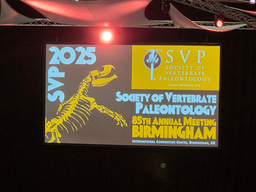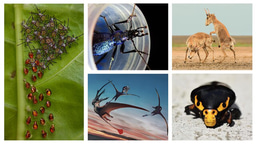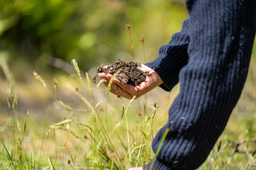Call for papers: Automated and remote biodiversity monitoring
Published in Ecology & Evolution

BMC Ecology and Evolution is calling for submissions to our Collection on Automated and remote biodiversity monitoring. Preventing, halting, and reversing biodiversity loss is now being prioritized globally. In December 2022, world leaders adopted the Kunming-Montreal Global Biodiversity Framework. The Framework outlines goals for 2050 to be achieved via quantitative targets actioned by 2030 to protect and restore nature. Technological advances that allow automated or remote biodiversity monitoring are rapidly evolving and promise to help meet these global targets by providing scientific evidence to inform and evaluate ecosystem management and policy decisions.
In support of the United Nations’ Sustainable Development Goals (SDGs) 6: Clean water and sanitation, 13: Climate action, 14: Life below water, and 15: Life on land, BMC Ecology and Evolution welcomes research harnessing the power of remote sensing, unmanned aerial vehicles (UAVs), remotely operated vehicles (ROVs), camera traps, distributed and connected sensor systems, lidar technology, environmental DNA (eDNA) analysis, mobile applications, and bioacoustics for automated and remote biodiversity monitoring. We also encourage the submission of research that uses machine learning and artificial intelligence to tackle the challenge of analyzing the abundance of data generated by such technologies for biodiversity monitoring.
Meet the Guest Editors
Jenni Raitoharju, Faculty of Information Technology, University of Jyväskylä, FinlandJenni Raitoharju is currently an Assistant Professor of Signal Processing at University of Jyväskylä, Finland and a part-time Senior Research Scientist at the Finnish Environment Institute. She received her PhD in Information Technology from Tampere University of Technology in 2017. Her research interests include machine learning and pattern recognition methods along with their application in environmental monitoring and autonomous systems. Raitoharju has been involved in several projects related to automated and remote environmental monitoring. Currently, she is the PI of an ongoing Academy of Finland project "TIMED: Taxa Identification with Machine Learning Enhanced by DNA Metabarcoding" and a task leader in a large Finnish Biodiversity Information Facility FIRI project. She has co-authored 78 papers in international peer-reviewed journals and conferences.
Luiz G. M. Silva, ETH-Zürich, Institute of Environmental Engineering, Switzerland
Dr Luiz G. M. Silva is an ecohydraulics scientist with a background in fish ecology and engineering. He has over 17 years of experience studying the effects of water infrastructure on freshwater fish and is highly active in discussions about measures to halt freshwater biodiversity loss. Thus, he has grown his research interest in freshwater monitoring tools and using artificial intelligence to enhance our capacity to collect and process data. He is also a member of the Freshwater Biodiversity Observation Network.
Submission Guidelines
This Collection welcomes submission of original Research Articles. Should you wish to submit a different article type, please read our submission guidelines to confirm that type is accepted by the journal. Articles for this Collection should be submitted via our submission system, Snapp. During the submission process you will be asked whether you are submitting to a Collection, please select "Automated and remote biodiversity monitoring" from the dropdown menu.Articles will undergo the journal’s standard peer-review process and are subject to all of the journal’s standard policies. Articles will be added to the Collection as they are published.
The Editors have no competing interests with the submissions which they handle through the peer review process. The peer review of any submissions for which the Editors have competing interests is handled by another Editorial Board Member who has no competing interests.
Submission Status: Open | Submission Deadline: 19 July 2024
Follow the Topic
-
BMC Ecology and Evolution

An open access, peer-reviewed journal interested in all aspects of ecological and evolutionary biology.
Related Collections
With Collections, you can get published faster and increase your visibility.
Bioacoustics and soundscape ecology
BMC Ecology and Evolution welcomes submissions to its new Collection on Bioacoustics and soundscape ecology. By studying how animals use sound and how noise impacts them, you can learn a lot about the well-being of an ecosystem and the animals living there. In support of the United Nations Sustainable Development Goals (SDGs) 13: Climate action, 14: Life below water and 15: Life on land, the Collection will consider research on:
The use of sound for communication
The evolution of acoustic signals
The use of bioacoustics for taxonomy and systematics
The use of sound for biodiversity monitoring
The impacts of noise on animal development, behavior, sound production and reception
The effect of anthropogenic noise on the physiology, behavior and ecology of animals
Innovative technologies and methods to collect and analyze acoustic data to study animals and the health of ecosystems
Reviews and commentary articles are welcome following consultation with the Editor
(Jennifer.harman@springernature.com).
Publishing Model: Open Access
Deadline: Mar 27, 2026
Ecology of soils
BMC Ecology and Evolution invites researchers to submit their work on soil ecosystems and their implications for environmental sustainability. Soils are living, dynamic systems that support a vast array of organisms, from tiny microbes to plants and animals. They play a vital role in keeping our planet healthy by recycling nutrients, storing carbon, and helping regulate water and climate. Understanding how soil life functions and adapts is essential for tackling major environmental challenges like climate change, habitat loss, and soil degradation.
This collection of articles aims to showcase the latest research in soil ecology, emphasizing the interactions among soil organisms, biogeochemical processes, and ecosystem functions across various landscapes. We invite submissions that explore the following topics:
•Microbial and faunal diversity in soils: Patterns, drivers, and functional roles of bacteria, fungi, protists, and invertebrates
•Soil biogeochemistry and ecosystem functioning: Nutrient cycling, carbon sequestration, and soil health in both natural and managed ecosystems
•Soil-plant interactions: Rhizosphere processes, plant-microbe symbioses, and their effects on vegetation dynamics
•Land use and climate change impacts on soil communities: Responses of soil biodiversity and functions to agricultural intensification, urbanization, pollution, and climate shifts
•Soil metagenomics, phylogenetics, and functional ecology: Advances in molecular approaches for studying soil microbial and faunal communities
•Conservation and restoration of soil ecosystems: Strategies for maintaining soil biodiversity and ecosystem services in degraded landscapes
All manuscripts submitted to BMC Ecology and Evolution, including those submitted to collections and special issues, are assessed in line with our editorial policies and the journal’s peer review process. Reviewers and editors are required to declare competing interests and can be excluded from the peer review process if a competing interest exists.
This Collection supports and amplifies research related to SDG 15: Life on Land.
Publishing Model: Open Access
Deadline: Jun 02, 2026





Please sign in or register for FREE
If you are a registered user on Research Communities by Springer Nature, please sign in